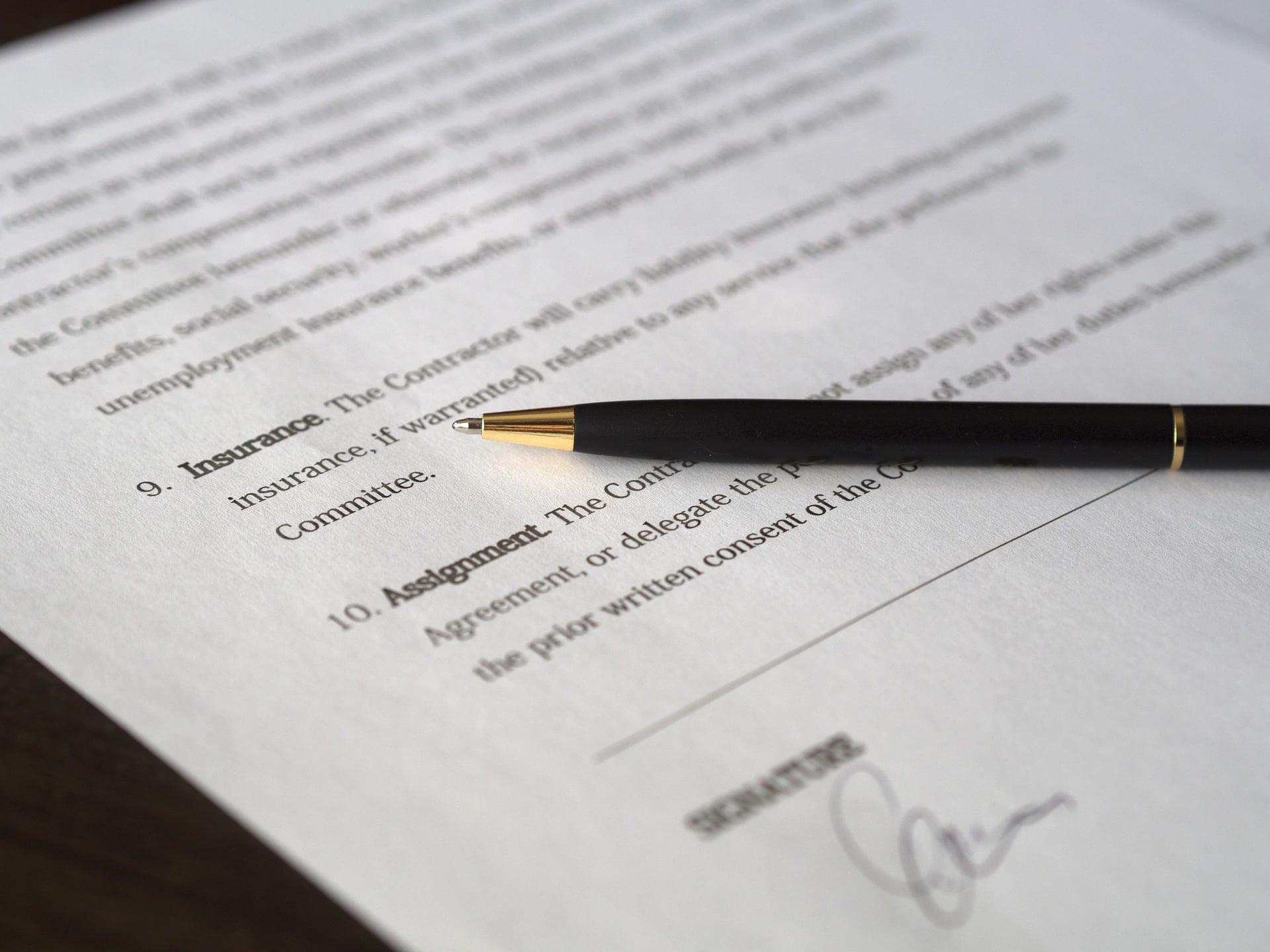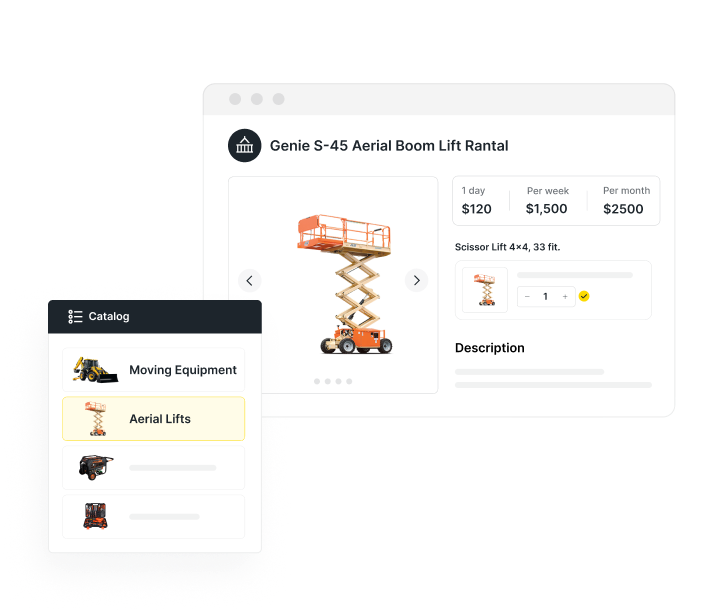When you rent out equipment to customers, you’ll need a comprehensive equipment rental Terms & Conditions agreement for them to sign. A well-crafted Terms & Conditions agreement constitutes a legally binding contract that protects your rental business, your equipment, and establishes clear expectations for both parties.
Bottom Line Up Front: Your equipment rental agreement must include essential clauses covering indemnification, rental periods, equipment usage stipulations, loss/damage provisions, transportation rules, insurance information, and default conditions. Without proper legal documentation, you risk costly disputes and unprotected assets.
Generate Your Professional Rental Agreement Now
Skip the guesswork and create a comprehensive equipment rental agreement in minutes. Our free generator includes all essential legal clauses and produces professional documents you can download immediately.
⚠️ Legal Disclaimer: This tool provides template agreements for informational purposes only. Always consult with a qualified attorney to ensure compliance with your local and state laws.
The Importance of a Rental Agreement
Equipment rental agreements serve as your first line of defense against operational and financial risks. In today’s competitive rental market, where independent rental companies face increasing pressure from national chains, having bulletproof legal documentation isn’t just recommended—it’s essential for survival.
A comprehensive rental agreement protects your business in multiple ways:
Financial Protection: Clear terms prevent disputes over damages, late fees, and usage violations that could otherwise result in costly litigation or unrecovered losses.
Operational Clarity: Well-defined rental periods, usage guidelines, and return policies eliminate confusion and reduce time spent resolving customer disputes.
Legal Compliance: Proper documentation ensures you meet local and state regulatory requirements while establishing enforceable contract terms.
Professional Credibility: Professional agreements signal to customers that you operate a legitimate, established business, which builds trust and can command higher rental rates.
Without proper rental agreements, you’re essentially operating with rental gridlock—the operational inefficiencies and blind spots that prevent rental businesses from scaling profitably. Every unprotected rental represents potential lost revenue and unnecessary risk.
What to Include in Your Terms & Conditions Agreement for Equipment Rentals
Your equipment rental terms and conditions should include specific clauses and information that cover all your bases and provide comprehensive protection. Here are the essential components every rental agreement must include:
Party Names and Contact Information
Clearly identify all parties involved in the rental agreement, including the full legal names of the rental company and the renter(s). Include:
- Complete business or individual names
- Physical addresses and mailing addresses (if different)
- Phone numbers and email addresses
- Tax identification numbers or driver’s license numbers
- Authorized signatory information for business rentals
This information establishes the legal parties bound by the agreement and provides necessary contact details for communication throughout the rental period.
Specific Equipment Being Rented
Provide detailed equipment specifications to eliminate any confusion about what’s being rented:
- Equipment make, model, and serial numbers
- Year of manufacture and current condition
- Included attachments, accessories, or components
- Equipment capacity, specifications, and operational limits
- Current meter readings (hours, miles, etc.)
Detailed equipment descriptions protect against disputes and ensure both parties understand exactly what equipment is covered under the agreement.
Rental Rates and Payment Terms
Establish transparent pricing and payment expectations:
- Hourly, daily, weekly, and monthly rental rates
- How rates change based on rental duration
- Overtime charges and late return fees
- Interest rates on overdue payments
- Accepted payment methods and payment schedules
- Sales tax information and additional fees
Clear pricing terms prevent misunderstandings and ensure consistent revenue collection.
Deposit Requirements
Specify security deposit and damage deposit terms:
- Deposit amounts and calculation methods
- When deposits are collected and returned
- Conditions that result in deposit forfeiture
- How deposit returns are processed
- Timeline for deposit return after equipment return
Proper deposit policies protect your equipment investment while establishing customer accountability.
Equipment Return and Usage Policies
Define acceptable use and return requirements:
- Permitted and prohibited uses of the equipment
- Operating hour restrictions and usage limitations
- Geographic restrictions on equipment use
- Required operator qualifications and certifications
- Equipment return conditions and cleaning requirements
- Inspection procedures upon return
These policies prevent misuse and ensure equipment is returned in acceptable condition.
Ownership Rights
Clearly establish equipment ownership and possession terms:
- Confirmation that rental company retains full ownership
- Renter’s rights and limitations during rental period
- Prohibition against subletting or transferring equipment
- Rights of rental company to inspect or reclaim equipment
- Procedures for equipment retrieval in case of default
Ownership clauses protect your property rights and prevent unauthorized equipment transfers.
Signatures and Legal Validation
Include proper signature requirements:
- Designated signature lines for all parties
- Date and location of agreement execution
- Witness or notary requirements (if applicable)
- Electronic signature acceptance policies
- Legal capacity confirmation for signatories
Proper signatures ensure the agreement is legally enforceable and binding.
Other Agreement Considerations
For heavy equipment rentals specifically, include additional provisions addressing:
- Operator Requirements: Certification requirements, training verification, and operator age restrictions
- Site Conditions: Ground conditions, access requirements, and environmental considerations
- Fuel and Maintenance: Fuel responsibility, basic maintenance requirements, and service intervals
- Transportation and Rigging: Delivery/pickup responsibilities, rigging requirements, and associated costs
Essential Legal Clauses
Indemnification Clause
The indemnification clause determines risk allocation between parties. This covers “direct claims” where customers must compensate you for costs resulting from equipment misuse or contract violations.
Key components include:
- Obligation to indemnify: Requires customers to reimburse specified costs and expenses
- Hold harmless provisions: Standard contract language requiring customers to “indemnify and hold harmless” the rental company
- Recoverable damages: Defines what damages are covered under the indemnification clause
Rental Period
Specify the exact rental duration, including:
- Start and end dates/times
- Grace periods for returns
- Procedures for rental extensions
- Automatic renewal terms (if applicable)
Loss or Damage Clause
This critical clause specifies customer responsibility for lost or damaged equipment:
- Customer assumes risk and responsibility for equipment
- Damage assessment procedures
- Repair cost responsibility
- Total loss valuation methods
Transportation Stipulations
Define transportation requirements and restrictions:
- Approved transportation methods
- Loading and unloading responsibilities
- Transit insurance requirements
- Geographic limitations on equipment movement
Insurance and Warranty Information
Provide clarity on insurance coverage:
- What damages your insurance covers
- Customer insurance requirements
- Warranty limitations and exclusions
- Procedure for insurance claims
Event of Default Clause
Essential for contract enforcement, this clause allows you to:
- Terminate agreements for contract breaches
- Declare all amounts immediately due and payable
- Recover equipment without notice
- Pursue legal remedies for violations
Negotiating Terms
When should you negotiate rental terms? While standardized agreements protect your business and streamline operations, certain situations warrant customized terms.
When to Consider Custom Terms
High-value customers with proven payment history and significant rental volume may justify customized agreements. Consider negotiating terms for:
- Long-term rentals (30+ days) where extended rates make sense
- Volume customers who consistently rent multiple pieces of equipment
- Repeat customers with established relationships and good payment history
- Seasonal contracts where predictable demand allows for preferential pricing
Terms Worth Negotiating
Rental rates are the most common negotiation point, but consider these factors:
- Payment terms: Extended payment periods for established customers
- Deposit requirements: Reduced deposits for customers with strong credit
- Usage restrictions: Modified operating hours for specific projects
- Maintenance responsibilities: Shared maintenance costs for long-term rentals
When to Hold Firm
Never compromise on safety, insurance, or legal protection clauses. Some terms should remain non-negotiable:
- Safety requirements and operator qualifications
- Insurance coverage minimums
- Basic liability and indemnification provisions
- Equipment return condition standards
Remember: Every exception creates operational complexity. Custom terms should provide significant business value to justify the additional administrative overhead.
Other Tips for Your Agreements
Legal Support
Consult with a contract attorney to ensure your rental agreements comply with local and state laws. Legal requirements vary by jurisdiction, and improperly worded agreements may not be enforceable when you need them most.
Consider annual legal reviews of your standard agreements to address:
- Changes in local regulations
- Industry best practice updates
- Contract language optimization
- New risk mitigation strategies
Keep Proper Records
Maintain comprehensive documentation for every rental transaction:
- Signed original agreements for all rentals
- Equipment inspection reports (pre and post-rental)
- Payment records and communication logs
- Modification or extension documentation
- Insurance certificates and coverage verification
Proper record-keeping supports contract enforcement and provides evidence in disputes or legal proceedings.
Track Signatures and Rented Equipment
Modern rental management systems eliminate rental gridlock by automating agreement tracking and equipment management. Quipli’s integrated platform streamlines these processes by:
- Digital signature capture that automatically stores signed agreements
- Real-time equipment tracking that prevents double-booking and ensures availability accuracy
- Automated documentation that generates rental agreements with pre-populated customer and equipment information
- Online rental capabilities that allow customers to review and sign agreements before pickup, reducing counter time
- Integrated payment processing that links agreement terms to billing and collection systems
By unifying agreement management with inventory tracking and customer management, Quipli helps rental companies break free from the operational silos that create inefficiency and missed opportunities.
Commonly Asked Questions
Do I need a lawyer for my rental agreement and terms & conditions?
Yes, we strongly recommend consulting with a contract attorney for creating your rental agreements. While templates provide a starting point, local laws vary significantly, and improperly worded agreements may not hold up in court. An attorney can ensure your agreements comply with state regulations and provide maximum legal protection.
Should a rental agreement be different from a lease agreement?
Absolutely. Rental agreements and lease agreements serve different purposes and have different legal implications:
- Rental agreements are typically short-term (days to months) and cover temporary equipment use
- Lease agreements are longer-term (months to years) and may include purchase options or different tax implications
- Legal requirements differ between rental and lease contracts in most jurisdictions
- Pricing structures and payment terms typically vary between rental and lease scenarios
What if multiple parties want to be on the same rental agreement?
Multiple parties require additional considerations:
- Joint and several liability clauses make all parties responsible for the full rental amount
- Authorized user provisions specify who can operate the equipment
- Primary contact designation establishes communication responsibilities
- Individual liability limitations may be requested but should be carefully evaluated
- Corporate guarantees may be appropriate for business rentals with multiple signatories
How do I set up agreements for multi-location equipment rental operations?
Multi-location operations need standardized yet flexible agreement systems:
Standardize core terms across all locations while allowing location-specific modifications for:
- Local regulations and tax requirements
- Regional pricing variations
- Location-specific equipment or services
Implement unified systems that allow agreement management across locations. Quipli’s multi-location capabilities enable:
- Centralized agreement templates with location customization
- Cross-location equipment transfers with updated agreement terms
- Consolidated customer records and agreement history
- Standardized reporting and compliance tracking
Consider location-specific requirements such as:
- Different insurance requirements by state
- Varying operator certification requirements
- Local environmental or safety regulations
- Regional payment preferences or terms
Break Free from Rental Gridlock with Quipli
Ready to streamline your rental agreement process? Quipli’s integrated rental management platform eliminates the operational bottlenecks that create rental gridlock, allowing you to process agreements faster, track equipment more effectively, and focus on growing your business.
Our platform includes digital agreement management, real-time inventory tracking, and automated documentation that transforms your rental operation into a self-optimizing, profitable asset.
Schedule a demo today to see how Quipli can help you break free from rental gridlock and compete more effectively in today’s equipment rental market.







